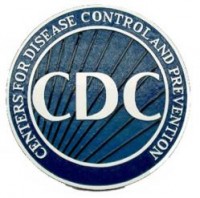 CDC: Morbidity and Mortality Weekly Report (MMWR)
CDC: Morbidity and Mortality Weekly Report (MMWR)
Injection Drug Users (IDUs) in the United States (U.S.) are at increased risk of acquiring human immunodeficiency virus (HIV) infection. Despite a recent reduction in the number of HIV infections attributed to injecting drug use in the U.S., IDUs remain a substantial proportion of those becoming infected with HIV. In 2009, 9% of new HIV infections in the U.S. occurred among IDUs.
To monitor HIV-associated behaviors and HIV prevalence among IDUs, CDC’s National HIV Behavioral Surveillance System (NHBS) conducts interviews and HIV testing in selected metropolitan statistical areas (MSAs). NHBS is a behavioral surveillance system used to monitor prevalence and trends in 1) HIV-related risk behaviors, 2) HIV testing, and 3) use of HIV prevention services among populations at high risk for acquiring HIV, including MSM, injection-drug users, and heterosexuals at increased risk for HIV infection. Data are collected in annual cycles from one risk group per year so that each group is surveyed once every 3 years. This report summarizes data from 10,073 IDUs interviewed and tested in 20 MSAs in 2009 as part of NHBS.
The report shares increased evidence of risk behaviors for persons at high risk for HIV infection. Of IDUs recruited in 20 U.S. cities, 9% tested positive for HIV, of whom 45% were unaware of their infection. Among those at risk of acquiring HIV infection, 34% reported sharing syringes and 69% reported having unprotected vaginal sex in the past 12 months. Less than half the IDUs reported having been tested for HIV (49%) or participating in a behavioral intervention (19%) during the same time period. HIV infection among IDUs in the U.S. remains a significant challenge. Although incidence data show that HIV incidence among IDUs is low, these data suggest that risk behaviors and lack of awareness of infection remain high.
Given the prevalence of drug and sexual risk behaviors among IDUs, efforts should be made to provide HIV prevention for IDUs – such as increased access to HIV testing, sterile syringes, and condoms. Multiple reviews find that Syringe Exchange Programs (SEPs) can reduce needle sharing among IDUs, resulting in positive behavior change that can reduce HIV transmission. The reviews also note that SEPs do not result in negative consequences such as increases in injection frequency, in injection drug use, or in unsafe disposal of needles in the community. SEPs can also provide a positive pathway to prevention for substance abusing persons. Proven prevention strategies remain critical for those at high risk for HIV, such as individuals with multiple sex partners, those in relationships with HIV-positive individuals and IDUs.


